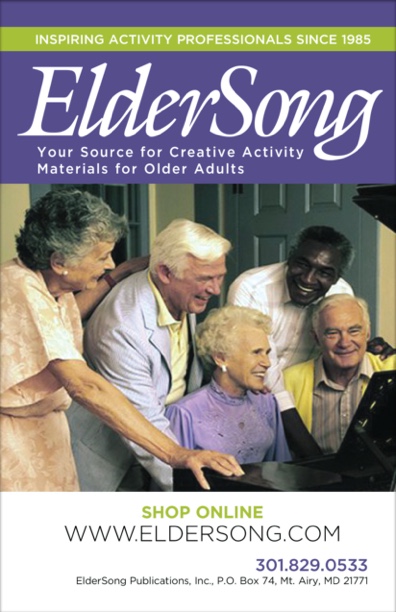Remember scooping ice cream, delivering newspapers, bagging groceries, collecting movie tickets, manning the elevator, or pumping gas? Many in your group can wax nostalgic about their first jobs. Summertime elicits memories of early work experiences in the teenage years. Try a few of the activities suggested below with your group and discover what the world of work meant to them in their younger years.
- JOBS IN SMALL TOWNS: Show photos of a typical mid-20th century small town – Main Street with movie theatre, drug store, corner grocery store, variety store, hardware store, barber shop, beauty parlor, movie theatre, bank. Or peruse old hometown newspaper employment ads. Name some kinds of part-time/summer jobs that were available for young people in small towns. (Examples: stock boy, soda jerk, movie theatre usher, gas station attendant, waitress, bus boy) Talk about which jobs have become obsolete.
- FIRST PAID JOB: Ask participants to share memories of their first paid job outside the home. Ask: How did you get your first job? What did you do? How much did you get paid? What were your hours? Did you enjoy the job? What kinds of jobs did your friends have?
- TEEN JOBS: Encourage group members to talk about the value of teens working after school or during the summer. Ask if anyone used their earnings to help support their family during the Depression or World War II. What was spending money used for? Did they encourage their own children to get a summer job? How old should teens be before they work outside the home?
- BEN FRANKLIN: Highlight the life of Ben Franklin – politician, statesman, author, printer, inventor. Read and discuss some business/work proverbs from Poor Richard’s Almanack. (Example: “At the working man’s house hunger looks in but dares not enter.”)
- SODA JERK: Invite a former “soda jerk” to wear a vintage-style uniform and make patriotic milkshakes for the group. Talk about favorite ice cream/soda specials from the 1940s and 1950s.
- HOME FRONT: Share memories of young people helping Uncle Sam and the war effort during World War II. (Example: Newspaper delivery boys taking orders for 10-cent defense savings stamps)
- QUIZ SHOW: Play What Was My Line? game (based on the old TV show). Ask several group members to be contestants and let the other residents guess each contestant’s former occupation. (It could be any job held by that person during his/her life.)
- CHORES: Reminisce about unpaid work – chores – on the family farm in the 1930s and 1940s. Use the following action words as starters: make (hay), haul (water), fill (wood box), wash (clothes), milk (cows), pull (weeds), feed (chickens). Add others as they come to mind. Ask if anyone ever had to leave school to help out on the farm.
- TEENS TODAY: Talk about teen employment today (types of jobs available, wages, work ethic, summer activities other than paid jobs, etc.). Compare the work experiences of teens today to work experiences in the 1930s – 1950s.
- MOVIES: Watch the 1967 screen version of the Broadway musical How to Succeed in Business Without Really Trying or the 1936 comedy Mr. Deeds Goes to Town.
- MUSIC: Sing or whistle the tune of some old work songs, such as “Whistle While You Work,” “I’ve Been Workin’ on the Railroad,” “The Banana Boat Song (Day-o),” “I’m an Old Cowhand.” Or, compile a Muzak (background music) playlist of songs that would make a 1940s factory worker more productive. Ask how singing, whistling, or listening to music would make a job easier or reduce boredom.
- FIRST CAR: Show excerpts from the DVD set “Great Cars: American Classics,” a featured product for the month. Ask the men in the group to talk about how they purchased their first car by working and saving money. What kind of vehicle did they choose and why? Did they buy secondhand to save money? Find out if anyone has a “Mustang” story to share on the 50th anniversary of its debut in 1964.
- FAMILY BUSINESS: Invite a third-or-fourth generation family business owner who started working in the company as a teen to talk about what made the business successful from generation to generation. (Examples: jewelry store, candy maker, furniture store, restaurant) Talk about the pros/cons of staying in the family business.
- ODD JOBS: Ask participants to list “odd” jobs that they have hired tweens/teens to do at their home in the past. (Examples: wash windows, snow removal, run errands, pet sit, weed garden/flower bed, paint)
ENTREPRENEURS TRIVIA QUIZ
- Which fast-food chain did the entrepreneur Colonel Harland Sanders start? Kentucky Fried Chicken
- Who introduced a low-priced point-and-shoot camera in the early 1900s? George Eastman – Eastman Kodak Company
- Which retail giant, started by Sam Walton, promises “Every Day Low Prices”? Wal-Mart
- Which family entertainment entrepreneur opened a theme park in Anaheim, California, in 1955? Walt Disney
- What type of business did Mary Kay Ash start? Cosmetics, fragrances, skin care products
- Which frozen food giant helped American women spend less time preparing meals in the kitchen? Clarence Birdseye – Birds Eye Foods
- What was Alfred Fuller’s successful door-to-door enterprise? Fuller Brush Company
- What can you order from an L.L. Bean mail order catalog? Clothing/outdoor equipment and gear
- Which self-help businessman wrote the 1936 best-seller How to Win Friends and Influence People? Dale Carnegie
- Where is Milton Hershey’s chocolate company located? Hershey, Pennsylvania
THOUGHT FOR THE MONTH
“There is no substitute for hard work.” ~ Thomas Edison
“First Jobs” written by Sue Hansen. Copyright 2014 ElderSong Publications, Inc. All rights reserved.


